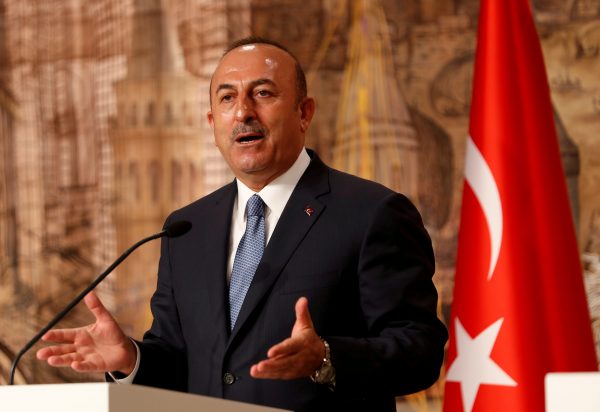Cavusoglu’s remarks came only days after the Turkish Foreign Ministry released a statement condemning the policy of systematic assimilation against the Uyghur Turks as a great shame for humanity. The Turkish government broke its silence on the issue after several months of international media coverage about what the Chinese government calls re-education and vocational training centres in the region.
This criticism from Ankara should not come as a surprise. A staggering majority of Turks consider Uyghurs their oppressed ethnic brethren and demand that their government be more vocal about their plight — precisely what the Turkish government is doing and has done in the past. Following the Urumqi riots in 2009 that cost more than 200 lives, then prime minister Recep Tayyip Erdogan described the events as ‘a kind of genocide.’ In 2015, following reports of a ban on Ramadan fasting in Xinjiang, Turkey’s Foreign Ministry protested, summoning the Chinese ambassador to express the ‘sadness among Turkish people’.
In both instances China reacted strongly to the allegations and made their position clear. Reactions from both sides soon toned down and relations resumed their normal flow.
This is likely to be repeated in the current episode. While the Turkish government has every right to express its concerns about the situation of the Uyghurs, it is also making efforts to address Beijing’s concerns about violence and separatism. Turkey’s policymakers have repeatedly referenced the sanctity of the territorial integrity of China.
In a meeting with his Chinese counterpart, Cavusoglu asserted that Turkey considers China’s security as their own security, and would not allow any harmful activities against China, neither inside Turkey nor in the wider region. In his recent speech in Geneva, he remarked that while they recognise China’s right to combat terrorism, they believe a distinction should be made between terrorists and innocent people.
Both countries are suffering from terrorism, and the Turkish government wants to convey the message that separatism against China is by no means acceptable — but not all Uyghurs are separatists and terrorists.
There are other dimensions to the Turkey–China relationship. Both the Turkish government and the business community are enthusiastic about the Belt and Road Initiative (BRI), and there are expectations for this grand project to support Turkey’s efforts to improve its physical infrastructure and technological capabilities. But it would be overly simplistic and outright wrong to conclude that Turkey will ignore the Uyghur issue due to the expected economic benefits of doing business with China.
Both sides have a stake in coming to terms on this issue — the BRI is creating a state of mutual interdependence between them, rather than a one-sided dependence by Turkey on China. Despite its current economic woes, Turkey has the seventeenth largest economy in the world, is a G20 member, and perhaps most importantly, is located at the crossroads between Europe and Asia. This makes it indispensable for the BRI.
The BRI has already taken off in Turkey. A consortium of Chinese companies has purchased a controlling stake at Kumport, the container port near Istanbul, and is now expanding the facilities. Chinese companies are also interested in three more Turkish ports, one each on the Aegean coast, Black Sea coast and the Mediterranean coast. Together with Greek, Israeli, and Egyptian ports, Turkish facilities can form a sea logistics network in the Eastern Mediterranean that will be of vital importance for both the land and maritime segments of the BRI.
China also has an interest in improving the Turkish railway network. The two governments have already signed an agreement to construct the Kars–Edirne high speed railway line that will connect Turkey’s easternmost point at its border with Armenia with its westernmost point at the European border. This railroad will turn Turkey into a transit hub for passengers and cargo and will also provide a feasible, reliable and secure route for the BRI’s connection between Europe and Asia.
Turkey is also important for China’s overall vision for the Middle East where Beijing has an economics-first approach. As an integral part of the region, Turkey offers significant partnership prospects for China. For instance, when the reconstruction of Syria begins in the coming years, Chinese corporations may be involved. Turkish companies (including small scale enterprises launched by Syrian refugees in Turkey) will be the natural choice for them as partners, contractors and suppliers, thanks to their experience, knowhow, cultural affinity and geographical proximity.
Can this Turkey–China cooperation within the BRI framework possibly induce the two sides to solve their differences on the Uyghur issue? This would require stronger and more efficient dialogue between the two governments and to what extent this can be achieved remains to be seen.
Altay Atlı is a lecturer at Koç University in Istanbul and a partner at Reanda Turkey.

